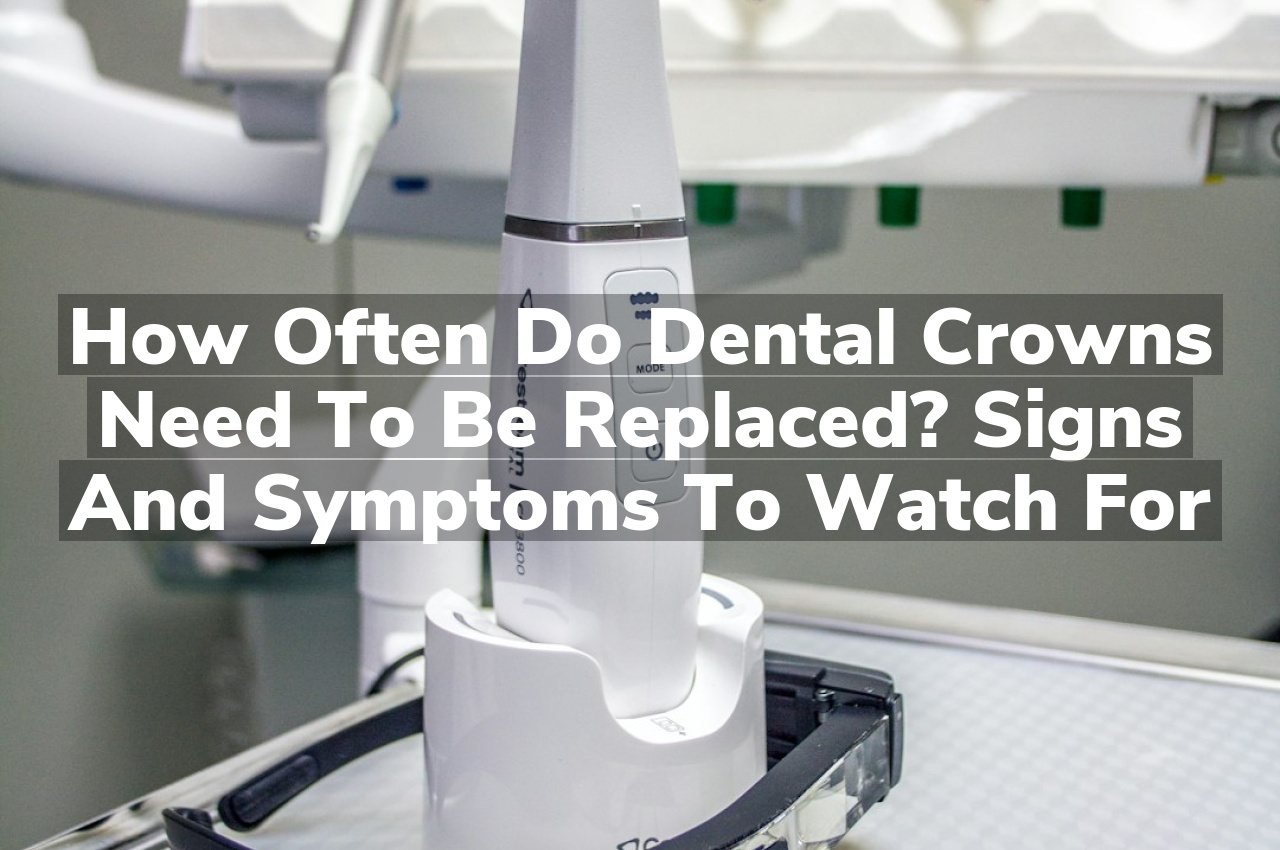How often do dental crowns need to be replaced, and what are the signs and symptoms to watch for? While the lifespan of dental crowns can vary, they generally need to be replaced after a number of years due to wear and tear. Recognizing the signs of deterioration can help you understand when a replacement might be necessary.
Dental Crowns Need to Be Replaced: Typical Lifespan of Dental Crowns
Dental crowns are a common solution for restoring the function and appearance of damaged teeth. Generally, the lifespan of dental crowns can vary widely depending on several factors including the material used, the placement in the mouth, and the care they receive. On average, dental crowns can last between 5 to 15 years before they might need to be replaced. However, with proper maintenance, some crowns can last even longer.
Understanding how long dental crowths typically last can help individuals gauge when their own crowns might need attention. For those curious about broader dental statistics, such as How Many Dental Crowns Does the Average Person Have? Statistics and Insights, it’s clear that dental crown usage varies widely among populations. This variability underscores the importance of personalized dental care and regular check-ups to assess the condition of dental crowns and determine when they might need to be replaced.
Factors Influencing Crown Durability
The longevity of dental crowns can vary significantly based on several factors, making it difficult to pinpoint exactly when dental crowns need to be replaced. Material choice plays a crucial role; for instance, porcelain crowns might exhibit different wear patterns compared to their metal or resin-based counterparts. Additionally, the location of the crown in the mouth affects its durability. Crowns placed on molars, which endure more mechanical stress from chewing, may have a shorter lifespan than those on other teeth.
Environmental factors and individual habits also impact how long a crown lasts. For example, individuals who grind their teeth or those who consume a lot of hard foods can expect their crowns to face more stress, potentially reducing their effectiveness over time. While the general expectation is that crowns should last anywhere from 5 to 15 years, these variables mean that the actual time until dental crowns need to be replaced can differ widely from person to person. Durable Dental Crowns Available in Meridian.
Common Signs of Crown Failure
When considering how often dental crowns need to be replaced, it’s crucial to be aware of the common signs that may indicate crown failure. These signs include noticeable discomfort or pain around the crowned tooth, especially when chewing or biting. Another indicator is a visible crack or chip in the crown itself, which can compromise its integrity. Additionally, if the crown feels loose or you observe swelling in the gum area around the dental crown, these could also be signs that the crown is failing and might need replacement. Recognizing these symptoms early can be crucial in addressing the issue promptly.
Impact of Oral Habits on Crowns
Oral habits such as grinding or clenching your teeth, chewing ice, biting fingernails, or using your teeth to open packaging can significantly impact the longevity of dental crowns. These activities can cause undue stress on crowns, potentially leading to cracks, loosening, or even complete dislodgement. While dental crowns are designed to be durable and mimic natural tooth function, they are not impervious to the effects of these harsh behaviors. Recognizing how your daily habits may influence the wear and tear on your crowns can be crucial in understanding how often dental crowns need to be replaced.
For more detailed information on dental crowns, consider visiting Meridian Dentist, Alliance Dental Care.
Symptoms of Loose Dental Crowns
Recognizing when dental crowns need to be replaced is crucial for maintaining oral health. One common indicator is the sensation of a loose crown. If the crown feels wobbly or shifts when you chew or brush your teeth, it might be loosening. Additionally, you might notice an unusual taste or persistent bad breath, which could suggest that the seal between the crown and tooth has been compromised, allowing bacteria to enter. Sensitivity to hot or cold foods and drinks can also occur if a crown no longer fits snugly. These symptoms are important to observe as they can signal that the integrity of the dental crown may be compromised.
Visual Changes in Crown Appearance
When considering how often dental crowns need to be replaced, it’s crucial to monitor for any visual changes in the crown’s appearance. Over time, dental crowns can show signs of wear such as fading, staining, or slight chips that might not affect their function but can impact aesthetics. These visual indicators are often the first sign that the integrity of the crown may be compromised. If the color of your crown begins to differ significantly from your natural teeth or if there are visible cracks, it’s important to consult your dentist. These changes can suggest that the crown is nearing the end of its lifespan and may need to be replaced to maintain both the health of your underlying tooth and your overall smile.
Sensitivity Issues with Older Crowns
When considering how often dental crowns need to be replaced, it’s crucial to monitor for sensitivity issues, which often indicate that a crown is nearing the end of its lifespan. Older crowns may no longer provide a tight seal, allowing hot, cold, or sweet stimuli to reach the nerve through micro-gaps. This can result in discomfort or sharp pains when eating or drinking certain foods. If you notice increased sensitivity or pain associated with a crowned tooth, it’s advisable to consult your dentist to assess the integrity of the crown and discuss potential replacement options.
Crown Complications from Gum Disease
When considering how often dental crowns need to be replaced, it’s crucial to be aware of the impact gum disease can have on their longevity. Gum disease can lead to gum recession, which exposes the roots of your teeth and the base of the crown. This exposure not only increases the risk of decay but can also cause the crown to become loose or even detach. Symptoms such as increased sensitivity, red or swollen gums around the crown, and a noticeable gap between the crown and the gum line are key indicators that your dental crowns may need to be evaluated by a professional. Regular dental check-ups are essential to catch these issues early and extend the life of your crowns.
Checking Crown Integrity During Checkups
Regular dental checkups are crucial for assessing the integrity of your dental crowns. During these visits, your dentist will examine your crowns for any signs of wear or damage, such as cracks, chips, or loosening. These inspections help determine if your dental crowns need to be replaced or if they can continue to function effectively. By catching issues early, you can avoid more extensive procedures and ensure your crowns maintain their fit and function. Remember, the lifespan of a crown can vary based on material and individual habits, so regular evaluations are key to maximizing their longevity.
Conclusion
Knowing when dental crowns need to be replaced is crucial for maintaining oral health. If you have concerns, call 208-646-9461 or read reviews on Google Maps.




